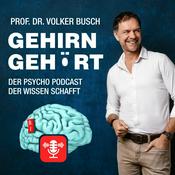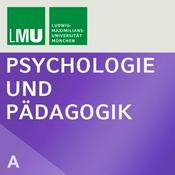98 Episoden

New Years Eve Special with Dr. Mark Bonta
31.12.2025 | 24 Min.
In this special New Year’s Eve solo episode, Dr. Mark Bonta steps away from the guest format to reflect on a landmark year for Ditch the Labcoat and to share where the show is headed next.After surpassing 50 episodes and approaching episode 100, Dr. Bonta looks back on how the podcast evolved in 2025. What started as a more traditional interview-style medical show has grown into deeper, more philosophical conversations about performance, longevity, mental health, neuroplastic symptoms, and the human side of healthcare.Using a surprising year-end analytics insight from his recording platform, he explores why the word “athlete” became one of the most frequently used terms on the show, and what that reveals about how healthcare, high performance, parenting, and recovery intersect. He also shares a candid and self-aware resolution for 2026, including how small environmental changes can shape better habits both personally and professionally.Looking ahead, Dr. Bonta outlines meaningful shifts for the podcast in 2026. Expect fewer episodes, greater depth, clearer thematic focus, and more intentional preparation to better honor guests and their work. He also highlights future areas of exploration, including neuroplastic and invisible illnesses, long COVID, chronic fatigue, high-performance mindsets, and the role of technology and AI in improving care.The episode closes with a deeply personal reflection on caregiving. A simple moment at home caring for his daughter leads to a broader meditation on touch, nursing, administrative burden, burnout, and why “caring” remains the most essential and fragile element of modern healthcare.This episode is both a thank-you to listeners and a statement of purpose for the year ahead.Mark Bonta's Links : https://ditchthelabcoat.com/ https://www.linkedin.com/in/mark-bonta-/ Episode Takeaway 1. Healthcare as Performance: Why the Athlete Mindset Keeps Appearing — Recovery, sleep, nutrition, and training principles apply far beyond elite sports.2. Filler Words Reveal Thinking: What “So” Says About Deep Conversation — Pauses often signal reflection, curiosity, and cognitive processing, not incompetence.3. Behavior Change Starts at Home: Environment Shapes Outcomes — The easiest habits are the ones your surroundings make unavoidable.4. Longevity Is Not Biohacking: It’s Consistency Over Intensity — Sustainable routines outperform extreme interventions every time.5. Quality Over Quantity: Fewer Episodes, Deeper Impact — Better preparation and focus create more meaningful learning for listeners.6. Invisible Illnesses Are Real: When Scans Don’t Explain Suffering — Neuroplastic symptoms demand credibility, nuance, and evidence-based care.7. Administrative Burden Erodes Care: Documentation Steals Time From Healing — Systems often pull clinicians away from the bedside.8. Burnout’s Red Flag: When Caring Disappears — Loss of empathy is a warning sign that support and reflection are urgently needed.Episode Timestamps05:08 – Why “Athlete” Became One of the Most Used Words on the Show07:27 – The Most Commonly Used Word on Ditch the Labcoat (And Why It Matters)09:44 – Setting Yourself Up for Success: Habits, Environment, and Behavior Change11:39 – Longevity Lessons from Athletes and Everyday Life14:02 – Quality Over Quantity: How the Podcast Evolves in 202617:25 – Neuroplastic and Invisible Illnesses: What Medicine Still Misses19:25 – Caregiving, Touch, and the Administrative Burden of Modern Medicine24:15 – Burnout, Red Flags, and the Importance of Never Stopping CaringDISCLAMER >>>>>> The Ditch Lab Coat podcast serves solely for general informational purposes and does not serve as a substitute for professional medical services such as medicine or nursing. It does not establish a doctor/patient relationship, and the use of information from the podcast or linked materials is at the user's own risk. The content does not aim to replace professional medical advice, diagnosis, or treatment, and users should promptly seek guidance from healthcare professionals for any medical conditions. >>>>>> The expressed opinions belong solely to the hosts and guests, and they do not necessarily reflect the views or opinions of the Hospitals, Clinics, Universities, or any other organization associated with the host or guests. Disclosures: Ditch The Lab Coat podcast is produced by (soundsdebatable.com) and is independent of Dr. Bonta's teaching and research roles at McMaster University, Temerty Faculty of Medicine and Queens University.

Real Talk with Pediatrician and Media Personality Dr. Alok Patel
24.12.2025 | 48 Min.
In this episode, Dr. Mark Bonta sits down with pediatrician and medical journalist Dr. Alok Patel to unpack what it really means to keep kids healthy in a chaotic healthcare system and a distracted digital world. Starting with a story about Mark’s nine year old getting injured at hockey, they dive into how parents can respond to injuries and illness without panicking, how to check your own emotions first, and when a situation truly belongs in the emergency department versus urgent care or a clinic visit.Drawing on his frontline pediatric experience, Dr. Patel breaks down practical red flags for parents to watch for, like increased work of breathing or changes in mental status, and explains why ER waits feel so brutal yet often reflect deeper system issues like staffing and bed shortages. He shares behind the scenes stories from “The Pitt” and his work on the official HBO companion podcast, highlighting how accurately the show captures social determinants of health and the emotional reality of modern emergency care.From there, the conversation moves into vaccines, flu season, and the very human fact that even doctors sometimes struggle to follow all their own advice. Mark and Alok talk candidly about phones, social media, Roblox, and why today’s kids are essentially part of a live experiment in screen exposure. They close with a focus on what actually protects kids long term: safe, nonjudgmental adults, honest conversations about mental health, limits around screens, and a home environment that values connection over perfection.Dr. Alok Patel's https://www.alokpatelmd.com/Episode Takeaways1. Parent First, Patient Second: Kids borrow their reaction from you, so the first step in any injury or illness is to calm your own emotions before you decide what to do.2. ER vs Clinic: Not every vomit, bump, or fever is life threatening, and learning when to use urgent care or outpatient clinics can spare families long, stressful ER waits.3. Triage Reality Check: Emergency departments prioritize the sickest patients first, which means long waits for minor issues are frustrating but often a sign the system is doing its job.4. Medicine Behind the Camera: The Pit shows how accurate medical details can sit in the background while stories focus on the real emotional chaos of patients, families, and staff.5. Social Determinants in Real Time: Two kids with the same diagnosis can have completely different outcomes depending on housing, income, family support, and access to care.6. Doctors Are Human Too: Even physicians miss flu shots, struggle with habits, or feel guilty, which can actually make their public health messages more relatable, not less credible.7. Screens and Social Media: The real risk is not one device but a constant digital environment that shapes brain development, sleep, self esteem, and social skills in ways we are only starting to understand.8. Safe Adults Save Lives: The most powerful protection for teens is a nonjudgmental adult who listens, normalizes hard conversations, and gives kids a place to bring their worst thoughts without fear.Episode Timestamps02:06 – Hockey Rink Medicine: How Doctors Triage Their Own Kids04:07 – Parents First: Calming Yourself Before You React to Injury06:50 – ER, Urgent Care, or Clinic: How to Decide Where Your Child Belongs09:37 – Waiting Room Reality: Triage, Delays, and Why Sickest Kids Go First12:34 – Inside “The Pit”: TV Emergency Medicine, Accuracy, and Chaos24:50 – Flu Shots, Doctor Guilt, and Why Practice Often Lags Advice31:06 – Kids, Phones, and Social Media: The Live Experiment on Their Brains37:08 – Teen Mental Health Red Flags: Subtle Signs and Safe Adult SpacesDISCLAMER >>>>>> The Ditch Lab Coat podcast serves solely for general informational purposes and does not serve as a substitute for professional medical services such as medicine or nursing. It does not establish a doctor/patient relationship, and the use of information from the podcast or linked materials is at the user's own risk. The content does not aim to replace professional medical advice, diagnosis, or treatment, and users should promptly seek guidance from healthcare professionals for any medical conditions. >>>>>> The expressed opinions belong solely to the hosts and guests, and they do not necessarily reflect the views or opinions of the Hospitals, Clinics, Universities, or any other organization associated with the host or guests. Disclosures: Ditch The Lab Coat podcast is produced by (soundsdebatable.com) and is independent of Dr. Bonta's teaching and research roles at McMaster University, Temerty Faculty of Medicine and Queens University.

Stop Fixing Everyone's Problems: Practical Advice with Leah Marone
17.12.2025 | 48 Min.
Psychotherapist and author Leah Marone joins Mark for a grounded conversation about why so many of us fall into the trap of overfunctioning for others. Leah, whose new book Serial Fixer explores this exact pattern, explains how emotional mirroring and urgency cycles show up in families, friendships, and clinical environments. She walks through the patterns she sees when people try to rescue or fix someone who is struggling and why that well intentioned approach often fuels more chaos rather than growth.Leah introduces practical indicators that boundaries are slipping, including resentment and repetitive conversations where nothing changes. She breaks down what serial fixing looks like in real time, how quickly we jump into problem solving to relieve our own discomfort, and why validation is the missing skill that keeps ownership where it belongs.She also explains her framework of support not solve, a mindset that helps clinicians, caregivers, and families shift away from codependency and toward healthier relational dynamics. Through relatable examples, Leah teaches how to use I statements, strengthen self trust, and approach hard conversations with clarity rather than guilt.This episode gives listeners concrete tools to stop taking responsibility for what is not theirs, communicate boundaries with confidence, and build more sustainable, compassionate relationships in their personal lives and in healthcare.Leah C Marone, LCSW Website : https://www.serial-fixer.com/TedTalk : https://www.youtube.com/watch?v=qVBjI4tNv3sEpisode Takeaways Self Care Is Not a Spa Day- Real self care is a series of small resets throughout the day that regulate your nervous system.Fixing Others Creates More Chaos- Trying to solve someone’s problems for them often fuels dependency and resentment.Resentment Signals a Boundary Problem- When irritation grows, it usually means you have taken on work that is not yours.Validation Beats Problem Solving- People calm down when they feel understood, not when they receive rapid fire solutions.I Statements Keep Conversations Safe- Replacing “you always” with “I feel” prevents defensiveness and keeps dialogue open.Urgency Is Often Self Imposed- Feeling responsible for everyone’s comfort pushes you into overfunctioning and emotional burnout.Self Trust Requires Reps- Boundaries get easier through practice, not perfection, and discomfort is part of the growth curve.Micro Transitions Change Your Day- Short pauses between tasks help reset your focus and reduce the compounding stress that builds across a busy day.Episode Timestamps03:58 – Meeting the Inner Critic: Why We Judge Ourselves So Harshly05:16 – Realizing People Are Not Thinking About You as Much as You Think24:18 – Why Fixing Others Fails and How to Shift the Pattern25:50 – Boundaries Require Reps: Getting Comfortable With Discomfort28:28 – The Danger of “You” Statements and How They Trigger Defensiveness32:19 – The Hidden Crisis in Medicine: Shell Culture and Silent Burnout33:23 – What Self Care Really Means: Internal Conflict and Rigid Beliefs35:40 – Micro Transitions: How Small Daily Moments Can Reset Your Nervous SystemDISCLAMER >>>>>> The Ditch Lab Coat podcast serves solely for general informational purposes and does not serve as a substitute for professional medical services such as medicine or nursing. It does not establish a doctor/patient relationship, and the use of information from the podcast or linked materials is at the user's own risk. The content does not aim to replace professional medical advice, diagnosis, or treatment, and users should promptly seek guidance from healthcare professionals for any medical conditions. >>>>>> The expressed opinions belong solely to the hosts and guests, and they do not necessarily reflect the views or opinions of the Hospitals, Clinics, Universities, or any other organization associated with the host or guests. Disclosures: Ditch The Lab Coat podcast is produced by (soundsdebatable.com) and is independent of Dr. Bonta's teaching and research roles at McMaster University, Temerty Faculty of Medicine and Queens University.

Treating and Preventing Invisible Illness with Dr. David Clarke
10.12.2025 | 48 Min.
Invisible illnesses shape millions of lives, yet most patients spend years in the system without answers. Dr. David Clarke has spent his career at the intersection of internal medicine, psychology, and mind-body research. His mission is clear. Help clinicians recognize when symptoms are driven by the nervous system rather than structural disease. Help patients finally feel seen. And give the medical community a framework to reduce unnecessary testing while improving outcomes.In this episode he explains how the brain generates real physical symptoms under stress, trauma, and emotional overload. He walks through clinical red flags that differentiate structural disease from functional conditions. He shares stories of patients who suffered for years before receiving the right diagnosis. Dr. Bonta and Dr. Clarke explore why invisible illnesses are often missed in rushed systems. They dig into tools clinicians can use to validate symptoms without over pathologizing them. They highlight communication strategies that restore trust. They also discuss prevention, early detection, and the growing evidence supporting mind-body approaches.The conversation is practical. Evidence based. Deeply human. Dr. Clarke shows how clinicians can uncover hidden drivers of symptoms and give patients a path to recovery even when imaging and lab work are normal. This episode is designed for anyone who wants to understand the science and psychology behind medically unexplained symptoms and how to improve care for this underserved population.David Clarke, MD's Website : https://www.symptomatic.me/Episode Takeaway 1. Neuroplastic Symptoms: Real physical sensations created by the brain that can improve with the right approach.2. Invisible Illnesses: Often missed because standard training focuses on structural disease, not functional mechanisms.3. Brain Body Pathways: Stress and trauma can activate neural circuits that generate chronic pain and gut symptoms.4. Diagnostic Clarity: Red flags help distinguish functional illness from conditions that need imaging or procedures.5. Validation Matters: Patients recover faster when clinicians acknowledge symptoms without dismissing them.6. Communication Skills: Asking the right questions uncovers hidden emotional drivers behind persistent symptoms.7. Prevention Tools: Early recognition of neuroplastic patterns reduces unnecessary testing and specialist referrals.8. Hope in Recovery: Most patients improve once they learn how the nervous system produces their symptoms.Episode timestamps 02:46 – Why invisible illnesses elude standard medical training06:13 – How the nervous system produces real physical symptoms10:34 – Red flags that separate structural disease from functional illness14:51 – Communication strategies that validate patient symptoms19:30 – Trauma, stress and the hidden drivers of chronic symptoms24:42 – Clinical cases that shifted Dr. Clarke’s diagnostic approach30:04 – Tools clinicians can use to reduce unnecessary testing35:57 – Preventing invisible illness through early recognition and educationDISCLAMER >>>>>> The Ditch Lab Coat podcast serves solely for general informational purposes and does not serve as a substitute for professional medical services such as medicine or nursing. It does not establish a doctor/patient relationship, and the use of information from the podcast or linked materials is at the user's own risk. The content does not aim to replace professional medical advice, diagnosis, or treatment, and users should promptly seek guidance from healthcare professionals for any medical conditions. >>>>>> The expressed opinions belong solely to the hosts and guests, and they do not necessarily reflect the views or opinions of the Hospitals, Clinics, Universities, or any other organization associated with the host or guests. Disclosures: Ditch The Lab Coat podcast is produced by (soundsdebatable.com) and is independent of Dr. Bonta's teaching and research roles at McMaster University, Temerty Faculty of Medicine and Queens University.

The Value of Being Vulnerable with Dr. Paul Fedak
03.12.2025 | 47 Min.
In this deeply human episode, Dr. Mark Bonta sits down with cardiac surgeon, scientist, and writer Dr. Paul Fedak for an honest look at the hidden cost of excellence in medicine. Dr. Fedak shares the story of the injury that forced him out of the operating room and into a profound reckoning with identity, purpose, and the culture of silence that surrounds clinician suffering.Drawing from years as Professor at the University of Calgary and Director of the Libin Cardiovascular Institute, he unpacks why perfectionism is so common in medical training, how surgeons learn to mask pain behind composure, and why emotional detachment has long been mistaken for professionalism. Together they explore the unseen burden clinicians carry, the pressure to perform without pause, and the moments when the mask finally cracks.Dr. Fedak speaks candidly about ego death, vulnerability, and rebuilding a life after losing the work that once defined him. He describes the colleagues who opened up only after he shared his own story, highlighting how connection and honesty can transform a profession built on quiet endurance.This episode examines the human side of medicine that rarely makes it into textbooks. Identity. Injury. Recovery. Presence. What it means to care for others while trying to stay whole yourself.A moving conversation for anyone in healthcare or anyone who has ever struggled with the weight of impossible expectations.Paul Fedak, MD, PhD's website : paulfedak.comEpisode Takeaways1. Surgeons are trained to push through pain, not acknowledge it.Medical culture rewards resilience and persistence, but that same conditioning prevents clinicians from recognizing and responding to their own injuries.2. Perfectionism is wired into medical training.Traits like list making, obsessive task completion, and performance under observation are common in medicine and often go unexamined despite their psychological cost.3. The mask of competence becomes automatic.Clinicians become so skilled at hiding distress that even close colleagues fail to notice warning signs. This silence leaves suffering invisible.4. Vulnerability creates connection and protects lives.When Dr. Fedak shared his story, dozens of peers came forward with their own hidden experiences. Openness is not weakness. It is safety.5. Ergonomic injuries in surgery are far more common than most people realize.The physical demands of operating are intense, yet surgeons lack the protections that other healthcare workers receive.6. Leadership shows the true burden physicians carry.Once in leadership roles, clinicians see the depth of burnout, fear, and quiet endurance happening behind the scenes.7. Losing the identity of “surgeon” creates an existential crisis.Stepping out of the operating room forced a complete reevaluation of purpose, ego, and self worth.8. Technical excellence is not the full measure of a doctor.Relational skill, empathy, presence, and human connection matter just as much as procedural skill.9. Medicine needs protected space for reflection.Without pause and presence, clinicians lose touch with themselves and the people they care for. Healing requires time, community, and grounding.10. System structures shape clinician wellbeing.The fee for service model rewards quantity over recovery, creating pressures that make self care feel impossible.11. Paying clinicians to care for themselves could change outcomes.If mental health visits, ergonomic care, and recovery time were compensated, more clinicians would seek help early.Episode Timestamps07:10 How one surgeon’s work related injury forced a career pivot and a deeper conversation about wellbeing.08:25 The secret stories colleagues shared only after Paul opened up about his own suffering.10:30 Independent contractor status and why doctors lack the ergonomic protections nurses receive.13:00 The unseen emotional toll behind surgical careers and what leadership reveals about clinician suffering.16:00 Training teaches perseverance, but injury demands honesty. The conflict surgeons are never taught to navigate.17:28 Medical trainees and perfectionism. Why obsessive traits are six times more common in medicine.19:10 When the mask becomes permanent. How clinicians hide distress even from each other.20:00 Two tragic losses and the lessons Paul learned about checking in with colleagues.22:00 Vulnerability as leadership. Why sharing your story opens the door for others to heal.28:57 Did speaking out come with professional risks. What changed when Paul stopped protecting his own ego.31:55 Losing the identity of “surgeon.” The ego death that followed leaving the operating room.33:40 Beyond technical mastery. Why excellence must include human connection, empathy, and presence.34:46 How medicine can “create space” for reflection, grounding, and real conversations.37:50 The hidden financial pressures behind surgical work and how billing shapes clinician behavior.DISCLAMER >>>>>> The Ditch Lab Coat podcast serves solely for general informational purposes and does not serve as a substitute for professional medical services such as medicine or nursing. It does not establish a doctor/patient relationship, and the use of information from the podcast or linked materials is at the user's own risk. The content does not aim to replace professional medical advice, diagnosis, or treatment, and users should promptly seek guidance from healthcare professionals for any medical conditions. >>>>>> The expressed opinions belong solely to the hosts and guests, and they do not necessarily reflect the views or opinions of the Hospitals, Clinics, Universities, or any other organization associated with the host or guests. Disclosures: Ditch The Lab Coat podcast is produced by (Podkind.co) and is independent of Dr. Bonta's teaching and research roles at McMaster University, Temerty Faculty of Medicine and Queens University.
Weitere Bildung Podcasts
Trending Bildung Podcasts
Über Ditch The Labcoat
Höre Ditch The Labcoat, Hörsaal - Deutschlandfunk Nova und viele andere Podcasts aus aller Welt mit der radio.de-App

Hol dir die kostenlose radio.de App
- Sender und Podcasts favorisieren
- Streamen via Wifi oder Bluetooth
- Unterstützt Carplay & Android Auto
- viele weitere App Funktionen
Hol dir die kostenlose radio.de App
- Sender und Podcasts favorisieren
- Streamen via Wifi oder Bluetooth
- Unterstützt Carplay & Android Auto
- viele weitere App Funktionen


Ditch The Labcoat
App laden,
loshören.






































